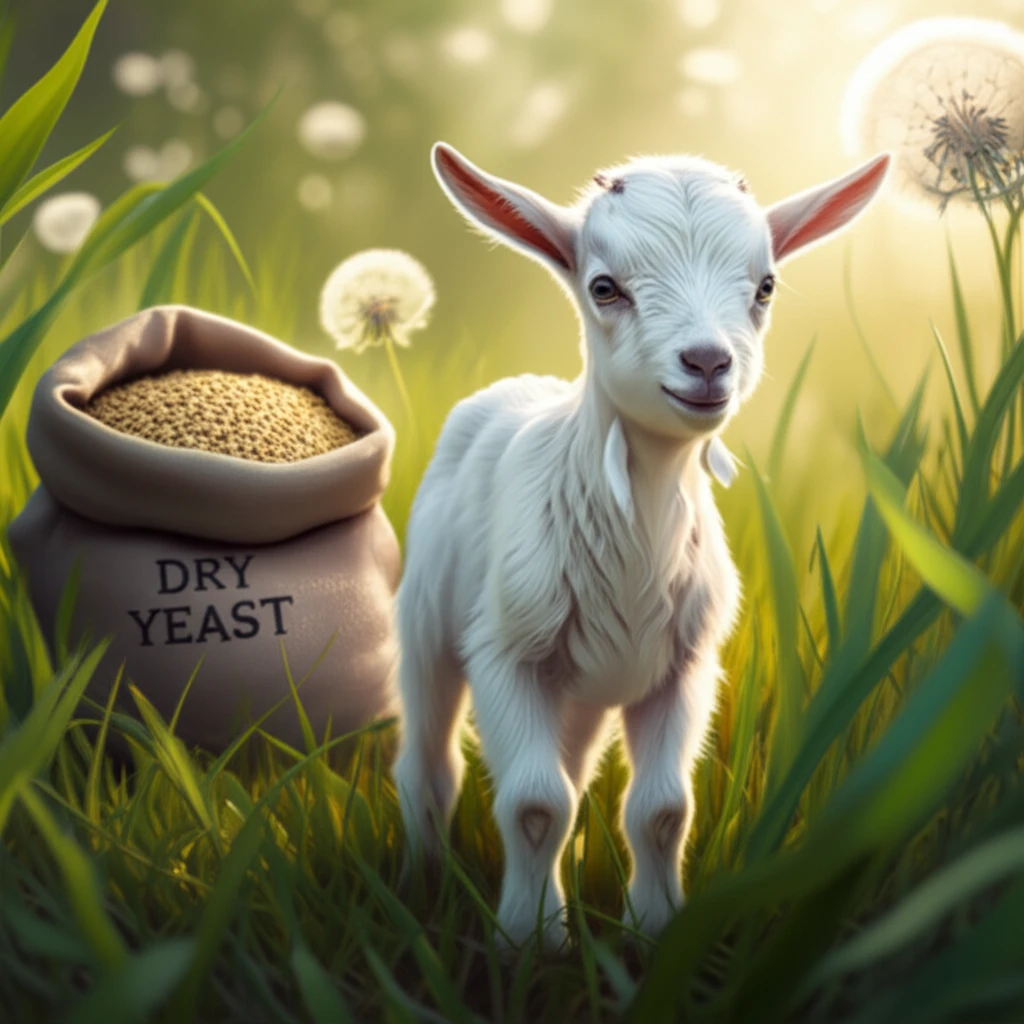
Goat Kids' Diet Makeover: Unleashing the Power of Dry Yeast for Faster Growth and Superior Meat
"Discover how a simple dietary change, using dry yeast, can revolutionize goat farming, leading to healthier, faster-growing kids and better meat quality."
In the dynamic world of agriculture, finding ways to optimize animal nutrition is an ongoing quest. For goat farmers, the goal is clear: raise healthy, robust kids that efficiently convert feed into high-quality meat. Traditional diets, however, often rely on conventional protein sources that can be expensive and may not always provide the best results. This is where innovative approaches, such as incorporating dry yeast into goat kid diets, come into play.
Recent research has illuminated the benefits of using dry yeast, a byproduct of the ethanol industry, as an alternative protein source in goat kid diets. This approach not only offers a sustainable solution by utilizing a readily available resource but also promises enhanced growth performance and improved meat quality. The study delves into the effects of dry yeast on goat kids' growth rates, feed conversion, and overall well-being, comparing it to conventional feed options.
This exploration is particularly relevant given the increasing focus on sustainable and efficient farming practices. For farmers, understanding the impact of feed choices is crucial for both animal welfare and economic viability. As we delve into the specifics, you'll discover how dry yeast can transform goat farming, paving the way for a more productive and sustainable future.
Why Dry Yeast? Unpacking the Nutritional Advantages for Goat Kids

Dry yeast, primarily composed of cells of Saccharomyces cerevisiae, has emerged as a promising ingredient in animal feed. This yeast, especially when derived from sugarcane, is rich in protein, making it an attractive alternative to traditional protein sources like soybean meal. Its nutritional profile includes essential amino acids and high digestibility, crucial for the growth and development of young goat kids. In addition to protein, dry yeast also provides B vitamins, which support overall health and metabolism.
- Enhanced Growth: Dry yeast promotes superior growth rates, helping goat kids reach market weight sooner.
- Improved Feed Efficiency: The inclusion of dry yeast in the diet leads to better feed conversion ratios, where goats convert feed into meat more efficiently.
- Sustainable Alternative: As a byproduct of the ethanol industry, dry yeast offers an environmentally friendly alternative to traditional protein sources.
- Better Meat Quality: Diets incorporating dry yeast can lead to better meat quality, potentially improving tenderness and flavor.
Transforming Goat Farming: The Future with Dry Yeast
The findings of this research provide valuable insights into how dry yeast can revolutionize goat farming, offering a more efficient and sustainable approach to animal nutrition. For farmers, this means the potential for faster growth, improved feed efficiency, and higher-quality meat. As the agricultural sector continues to evolve, innovations like the use of dry yeast will become increasingly important in promoting sustainable practices. For a sustainable future, farmers should embrace the power of dry yeast, and the benefits are clear: healthier animals, better products, and a more resilient farming system.
